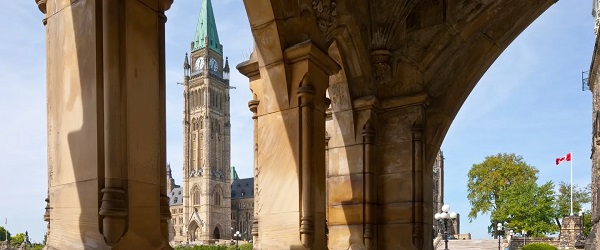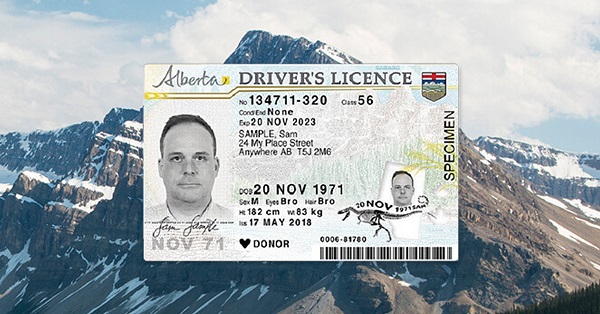Business
Biden’s Greenhouse Gas ‘Greendoggle’ Slush Fund Is Unraveling


From the Daily Caller News Foundation
By Michael Chamberlain
We warned you: this gas didn’t smell right from the beginning.
The Greendoggle has made the big time! Not every shady government giveaway to special interests gets its own Wall Street Journal editorial.
But how often does the new EPA administrator announce that his staff has discovered that $20 billion that had been appropriated for the Greenhouse Gas Reduction Fund (GGRF or “Greendoggle”) had been “parked” in a bank by the Biden EPA until it could be ladled out as grants to climate industry cronies? That’s what Administrator Lee Zeldin announced back in February, referencing a Biden appointee who was infamously caught on tape explaining that the agency was “throwing gold bars off the Titanic” – trying to get the unspent money out of the reach of the Trump administration. Zeldin’s “clawing back” that money, and the lawsuit by “public-private investment fund” Climate United to get the $7 billion it was awarded, has got the media paying attention. Finally.
Administrator Zeldin’s announcement that EPA is taking back the $2 billion awarded to an organization tied to prominent political figures marks another auspicious turn in the GGRF saga, which Protect the Public’s Trust (PPT) has followed and warned about since the beginning. Passed as part of the Inflation Reduction Act (Mr. Orwell, please call your office …), the GGRF was a massive spending program that would provide funds to environmentalist groups to finance green technology projects. The sheer amount of money Congress shoveled at the EPA was unprecedented. Unfortunately, it didn’t come with commensurate oversight resources – Mr. Zeldin says this was by design. The result was the Greendoggle, an environmentalist slush fund administered by insiders for insiders.
According to emails PPT obtained via FOIA request, the EPA invited a group of green activist organizations and thinktanks to a highly irregular November 2022 meeting to “provide early feedback on the RFI and ask clarifying questions.” And, as PPT foresaw, several groups with ties to EPA officials are on the invitation list. EPA’s “revolving door” with radical environmental groups spun fast in the Biden years.
PPT dug in and researched the green banks, finding multiple insider connections to the Biden administration. “With $27 billion dollars sloshing around, the American public should be on high alert for waste, fraud and abuse,” we warned in October 2023.
The next month, when the “short list” of coalitions vying to become GGRF distributors was announced, the Daily Caller News Foundation’s Nick Pope, whose reporting on the GGRF since early on has been essential in exposing the Greendoggle, revealed it featured “several organizations with considerable connections to the Biden administration, as well as the Democratic Party and its allies.” To put it mildly.
As the Greendoggle came together, the legacy media remained incurious, but for anyone paying attention, it smelled bad. There seemed to be no accountability, and given the Biden EPA’s ethical track record, that was concerning, to say the least.
One of the eight entities eventually chosen was the Coalition for Green Capital (CGC), a green bank whose mission is to “accelerate the deployment of clean energy technology throughout the US while maintaining a targeted focus on underserved markets.” CGC board member David Hayes left the organization for nearly two years to join the Biden White House Climate Policy Office as a special assistant to the president. He then went back to the CGC board. As PPT put it in a complaint it filed in June 2024 with the U.S. Office of Government Ethics and the EPA’s inspector general (and which the Zeldin EPA cited in its legal defense of the clawback), while at the White House Hayes “presumably worked at the highest level on the very GGRF program from which CGC sought funding upon his return. This timing is suspect considering CGC itself publicly announced his return to its board as part of its effort to obtain GGRF funding.” Not very subtle, but it worked. CGC got a $5 billion windfall out of the Greendoggle.
It just so happened that, while Mr. Hayes was in the administration, so was another CGC veteran, Jahi Wise. Like Hayes, Wise was a special climate assistant to the president, until he joined the EPA in December 2022 as … founding director of GGRF. Subtlety doesn’t seem to be among the skill sets CGC looks for in its people. Wise at least didn’t return to CGC after that. He joined a George Soros foundation.
The GGRF should become a metaphor for congressional shortsightedness, bureaucratic arrogance and the venality of special interests at the government trough. The “green” industry is an industry like any other, green special interests are special interests and the color of a taxpayer dollar doesn’t change because it’s being wasted in a nominally noble cause.
The Greendoggle stank, gas and all.
Michael Chamberlain is Director of Protect the Public’s Trust.
Business
Red tape is killing Canadian housing affordability

This article supplied by Troy Media.
 By Conrad Eder
By Conrad Eder
Bureaucracy and bad policy, not demand, are driving up housing prices
Imagine putting down a hefty deposit on an $800,000 pre-construction condo only to find out at closing that your unit is now worth $1 million.
That’s a $200,000 shortfall. Since banks lend based on appraised value, you’re left with two choices: cough up the extra cash or walk away and kiss your deposit goodbye.
Canada’s housing affordability crisis isn’t just about rising prices—it’s about a broken system that can’t keep up with what people actually need.
This isn’t an isolated nightmare. In major cities across Canada, appraisals are landing 10 to 30 per cent below contract prices. And it’s exposing a deeper dysfunction in our housing market.
Toronto alone has more than 24,000 unsold new condos. Units that once attracted investors and young professionals now sit empty while developers keep building more of the same—small, overpriced boxes nobody’s clamouring for. Meanwhile, buyers are hunting for larger, livable spaces they either can’t afford or can’t find.
Yet despite the demand for larger, livable spaces, the system keeps producing what no one really wants.
How did we get here? It’s not just about supply and demand. It’s about municipal red tape and sluggish approval systems that choke off the market’s ability to respond to changing needs.
If we’re serious about affordability, we have to fix this bottleneck. That starts with slashing approval timelines so homes can actually be built where and how people want them.
These delays don’t just frustrate builders: they limit housing supply, inflate prices and leave Canadians competing for homes that don’t fit their lives or budgets.
Across the country, getting from concept to construction can take years. The planning grind—permits, consultations, rezoning, environmental assessments—drags on and racks up indirect costs of as much as $5,576 per unit per month.
In Toronto, approvals average 25 months. That delay alone can tack on more than $100,000 to the final price of a condo. In Hamilton, it’s 31 months.
And those delays don’t just raise costs—they throw off timing. By the time a project finally breaks ground, the market has often moved on, leaving developers stuck delivering yesterday’s housing to today’s buyers.
Even those who can afford larger units hesitate to commit. Who wants to wait years just to move in, especially when the price is climbing the entire time?
Unsurprisingly, larger units are often the last to sell—too costly for most, too delayed for the rest.
The result? A steady stream of undersized condos that few actually want, offered at prices most can barely justify.
Yes, regulation has a place. But among the 35 member countries of the Organization for Economic Co-operation and Development (OECD), Canada ranks 34th in approval speed, with an average of 249 days. That’s not oversight—that’s paralysis. Countries with similarly strong environmental and safety standards manage to approve projects in half the time. So what’s our excuse?
It doesn’t have to be this way. Some cities are proving that faster approvals don’t mean cutting corners—they just mean cutting red tape. Between 2022 and 2024, Halifax slashed its approval timelines from 20.8 months to 9.8. Edmonton went from 10.5 months to just 3.4, without compromising
safety or public input.
Other cities could follow suit by adopting tools like automated same-day permits, consolidating overlapping policies, creating fast-track review lanes for compliant developers and publishing timelines to inject predictability and accountability into the process.
Let’s be clear: this isn’t about giving developers a free ride. It’s about giving Canadians more choice, better options and a fighting chance at ownership.
Unlike interest rates or material costs, these delays are entirely within government control. If policymakers actually want a responsive housing market, they need to stop jamming the gears.
They aren’t stuck with these timelines. They’re choosing them. And those choices are making housing more expensive while preventing the market from delivering what Canadians need, when they need it.
Conrad Eder is a policy analyst at the Frontier Centre for Public Policy.
Explore more on Housing, Canadian economy, Cost of Living, Municipal politics
Troy Media empowers Canadian community news outlets by providing independent, insightful analysis and commentary. Our mission is to support local media in helping Canadians stay informed and engaged by delivering reliable content that strengthens community connections and deepens understanding across the country.
Business
Carney’s ‘major projects’ list no cause for celebration

From the Fraser Institute
By Alex Whalen
Early in his term, Prime Minister Mark Carney placed great emphasis on the need to think big and move quickly, to make Canada the “world’s leading energy superpower.” Recently, the government announced the first group of projects to be championed by its new Major Projects Office (MPO), which was also recently created to circumvent existing rules and regulations to speed up approvals. Unfortunately, the list of projects is decidedly underwhelming, which highlights the need for a true course correction when it comes to fixing Canada’s investment crisis.
According to the government, the purpose of the Major Projects Office is to fast-track “nation building” projects, with a focus on regulatory approvals and financing. Yet, of the first five projects referred to the MPO, regulatory approvals have largely already been secured and the projects were likely to proceed without any intervention or assistance from Ottawa.
For example, many of the regulatory approvals required for the Darlington Small Nuclear Reactor are already in place, and construction has already begun. The McIlvenna Bay copper mine in Saskatchewan is already half-built.
Other projects, such as LNG Phase 2 and the Red Chris Copper Mine, both in British Columbia, are expansions of existing facilities and are backed by industry-leading firms such as Shell and Rio Tinto, respectively. In general, these projects do not need government assistance or financing since they’re already largely approved.
A further six projects being referred to the MPO are at an earlier stage of development, and for the most part do not yet require regulatory approvals. Carney has referred this list—which includes projects ranging from carbon capture to high speed rail to offshore wind—to the MPO to be matched with government “business development teams” to “advance these concepts.”
These initiatives parallel the approach by the Trudeau government to rely on government-directed projects to foster economic growth, which failed miserably. The Trudeau government’s economic policies featured a much larger role for government in the economy, including a general increase in the size and scope of the federal government, as measured by increased spending and regulation. The result? Under Trudeau, annual growth of per-person GDP (an indicator of living standards) was just 0.3 per cent, the worst track record of any recent prime minister. Net business investment (foreign direct investment in Canada minus Canadian direct investment abroad) declined by $388 billion between 2015 and 2023 (the latest year of available data).
To set Canada on a course to reverse the investment crisis, Carney must abandon the notion of government-directed economic growth. Approving projects already largely approved, while sending other less-certain projects to government business development bureaucrats, will not fix Canada’s problem. Simply put, the government should craft policy to create the right conditions for investment and entrepreneurship for all firms in all sectors of the economy, not simply its chosen winners.
To attract the kinds of major projects that will meaningfully improve Canada’s investment crisis, the Carney government should eliminate a host of regulations and reform those that survive. As other analysts have noted, the list of regulatory hurdles in Canada is long. Canada’s total regulatory load has increased substantially over time and across a wide range of industries including energy, autos, child care, supermarkets and more.
Nowhere is this more evident than the energy industry, which is one of the largest drivers of investment in Canada. Federal Bills C-69 and C-48 (which govern the project approval process and ban oil tankers on the west cost, respectively), alongside the federal greenhouse gas emissions cap, net-zero policies, and a host of other regulation such as new fuel standard have significantly constrained this industry, which is vital to Canada’s economic success.
Canada’s regulatory explosion has effectively decimated the country’s investment climate. While Bill C-5 allows cabinet to circumvent these regulations, it places the cabinet, and more specifically the prime minister, in the position of picking winners and losers. Broad-based tax and regulatory reduction and reform would be a much more effective approach.
Canada continues to struggle amid an investment crisis that’s holding back economic growth and living standards. Our country needs bold changes to the policy environment conducive to attracting more investment. The government’s response to date, through Bill C-5 and the MPO, involves making the government more, not less, involved in the economy. The government should reverse course.
-

 Business2 days ago
Business2 days agoCarney Admits Deficit Will Top $61.9 Billion, Unveils New Housing Bureaucracy
-

 Alberta1 day ago
Alberta1 day agoAlberta first to add citizenship to licenses
-

 Alberta1 day ago
Alberta1 day agoBreak the Fences, Keep the Frontier
-

 Business13 hours ago
Business13 hours agoCarney’s ‘major projects’ list no cause for celebration
-

 Business2 days ago
Business2 days agoCarney’s Ethics Test: Opposition MP’s To Challenge Prime Minister’s Financial Ties to China
-

 Business14 hours ago
Business14 hours agoGlobal elites insisting on digital currency to phase out cash
-

 Business12 hours ago
Business12 hours agoRed tape is killing Canadian housing affordability
-

 Business1 day ago
Business1 day agoAttrition doesn’t go far enough, taxpayers need real cuts

